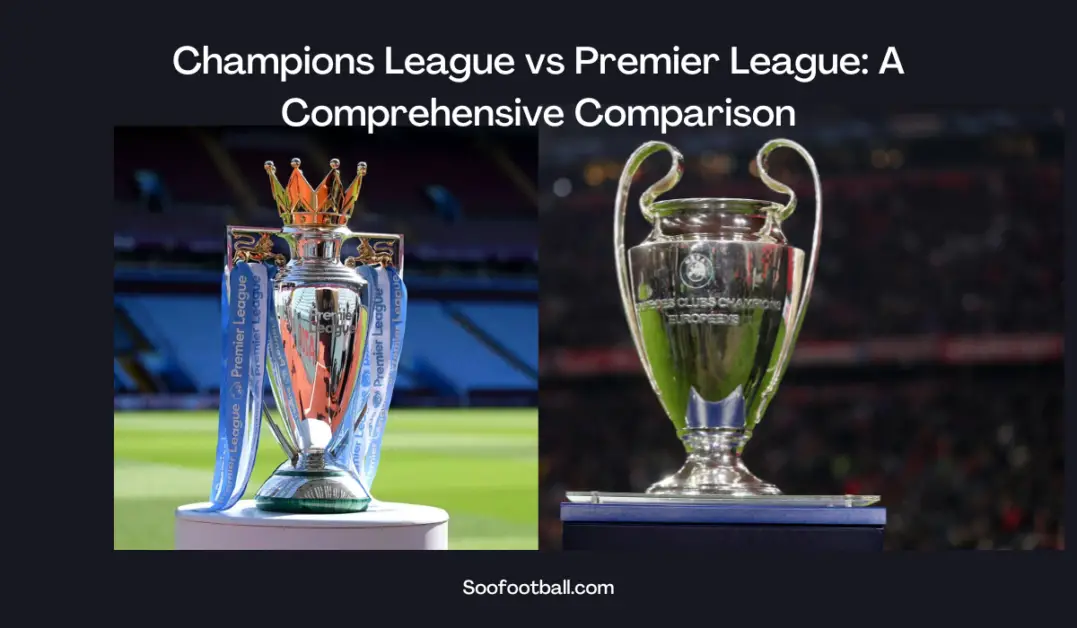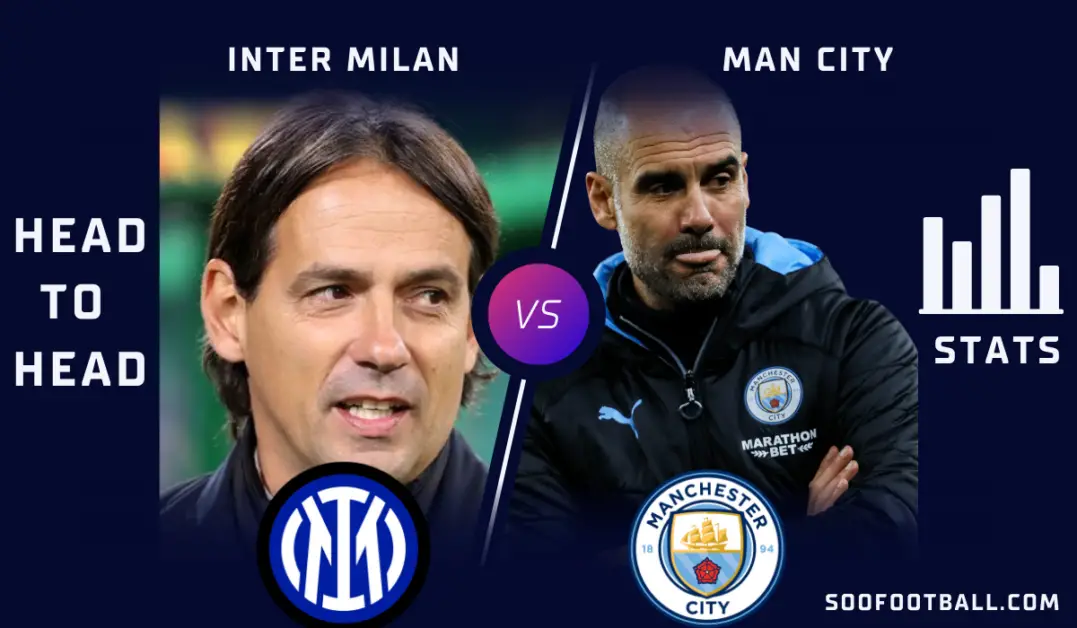Football, often referred to as “the beautiful game,” is a source of unbridled passion and excitement for millions of fans worldwide. Two of the most prominent and celebrated competitions in the world of football are the UEFA Champions League and the English Premier League. These tournaments not only provide scintillating action but also represent different facets of the sport. In this extensive side-by-side comparison, we will discuss various aspects of the Champions League vs the Premier League, meticulously evaluating and contrasting them to determine which of the two is more prestigious and more difficult to win.
Format and Structure
Champions League
The UEFA Champions League, often dubbed the pinnacle of club football, is an annual tournament organized by the Union of European Football Associations (UEFA). It brings together the finest clubs from various European leagues, creating a clash of footballing titans. The competition follows a structured format, consisting of multiple stages:
- Group Stage: The Champions League campaign commences with the group stage, where 32 teams are divided into eight groups of four. Each team plays a round-robin format, facing its group opponents both home and away. Points are awarded for wins and draws, and the top two teams from each group advance to the knockout stage.
- Knockout Stage: The knockout stage comprises two rounds, the Round of 16 and the Quarter-Finals, followed by the Semi-Finals. Teams compete in two-legged ties, and the winner is determined by the aggregate score. Away goals serve as a tiebreaker if the aggregate score is level.
- Quarter-Finals: The eight surviving teams from the Round of 16 advance to the Quarter-Finals. They face off in two-legged ties, with the victors progressing to the Semi-Finals.
- Semi-Finals: The Semi-Finals see four remaining teams competing in two-legged encounters, leading to the grand finale.
- Final: The zenith of the Champions League is the final match, where two teams battle it out for the coveted title of European champions.
Premier League
In contrast, the English Premier League, often referred to simply as the Premier League, is the top tier of English football. It operates on a round-robin system, involving 20 clubs that compete over a 38-game season. Each team plays the others twice – once at home and once away – and accrues points based on match results.
- 38-Game Season: The Premier League season is a marathon, with each club playing a total of 38 matches. This format emphasizes the importance of consistency and endurance over a prolonged period.
- Three Points for a Win: The Premier League awards three points for a win, one point for a draw, and zero points for a loss. The team with the most points at the end of the season is crowned the champion.
- Promotion and Relegation: The league features promotion and relegation, meaning that the bottom three teams in the final standings are relegated to the lower division (the Championship), while the top two teams from the Championship, along with the winner of the Championship play-offs, are promoted to the Premier League.
- Financial Clout: The Premier League is renowned for its financial strength, which allows it to attract top talent from around the world. Its lucrative TV deals and commercial success make it a financial powerhouse in the footballing world.
Prestige
Champions League
The UEFA Champions League is often hailed as the most prestigious club competition in the world for several compelling reasons:
- Global Recognition: The Champions League enjoys widespread international viewership. Matches are broadcast in over 200 countries, making it a global footballing spectacle that transcends borders and languages.
- Historical Significance: The tournament has a storied history dating back to its inception in 1955 as the European Cup. Clubs like Real Madrid, AC Milan, and FC Barcelona have left an indelible mark on the competition, creating a historical legacy that enhances its prestige.
- Quality of Competition: The Champions League features the crème de la crème of European football. Clubs that have earned their place in the tournament have already proven their worth in their respective domestic leagues, thereby upholding the highest standard of competition.
- Iconic Moments and Matches: Over the years, the Champions League has witnessed unforgettable moments and epic encounters, such as Liverpool’s remarkable comeback from 3-0 down against AC Milan in the 2005 final. These iconic moments add to the tournament’s prestige.
Premier League
The Premier League, while not a continental competition like the Champions League, boasts its own distinct prestige:
- Competitive Domestic League: The Premier League is renowned for its competitiveness and the quality of football it offers. It attracts top talent from all over the world and has a fervent following within England and beyond.
- Global Popularity: The Premier League is one of the most-watched football leagues worldwide. Its matches are broadcast in numerous countries, and its clubs have massive fan bases globally, contributing to its widespread popularity.
- Historical Significance: The Premier League was established in 1992, replacing the old First Division. Since then, it has produced memorable champions and thrilling seasons, adding to its historical significance.
- Diversity: The Premier League showcases a diverse mix of playing styles, with clubs representing various countries and cultures. This diversity makes it an appealing prospect for players and fans alike.
In terms of prestige, both the Champions League and the Premier League possess unique strengths that make them stand out in the world of football. The Champions League, with its global recognition, rich history, and top-class competition, is undeniably one of the most prestigious football tournaments globally.
Conversely, the Premier League’s reputation as a fiercely competitive and globally popular league cannot be understated. It is this contrast that adds depth to the conversation about footballing prestige.
Difficulty
Champions League
The Champions League’s difficulty is rooted in its format and the calibre of opponents faced by participating teams:
- Intense Competition: From the group stage onwards, teams face off against Europe’s elite. The margin for error is slim, as a single bad result can lead to elimination.
- Two-Legged Ties: The knockout stages are particularly challenging due to the two-legged tie system. Teams must perform consistently over two matches, with away goals often serving as a tiebreaker.
- Quality of Opponents: Teams must contend with squads packed with international stars and top-class talent. Overcoming opponents like Bayern Munich, Manchester City, or Paris Saint-Germain is a daunting task.
- Injuries and Fatigue: The demanding schedule of the Champions League can take a toll on players, increasing the difficulty of sustaining a deep run. This is especially true for clubs with smaller squads.
Premier League
The Premier League’s difficulty is deeply ingrained in the nature of its domestic competition:
- 38-Game Season: The Premier League mandates consistent performance over an arduous 38-game season. Teams must navigate the challenges posed by a lengthy campaign, with each club facing every other twice.
- Competitive Balance: The Premier League is known for its competitive balance. It is not uncommon for lower-ranked teams to defeat the league leaders, making every match a potential challenge.
- Physical Demands: The pace and physicality of the Premier League are renowned worldwide. The need for top fitness levels and resilience is a defining feature of the competition.
- Squad Depth: Premier League clubs require strong squads to navigate the gruelling season and deal with injuries, suspensions, and player fatigue. The ability to rotate and maintain performance levels is a crucial factor.
When comparing the difficulty of the Champions League vs the Premier League, it becomes evident that each competition offers a unique set of challenges. The Champions League’s difficulty lies in the high-stakes knockout matches against the crème de la crème of European clubs, with two-legged ties adding an extra layer of complexity.
The quality of opponents is consistently top-tier, making every stage of the competition a daunting task. Injuries and player fatigue can further complicate the journey.
On the other hand, the Premier League’s difficulty is characterized by the marathon-like 38-game season, which demands unwavering consistency and the ability to maintain performance levels over an extended period.
The competitive balance in the league means that upsets are commonplace, keeping clubs on their toes. The physical demands of the Premier League are also considerable, and squad depth is essential to navigating the challenges posed by the gruelling schedule.
Conclusion
Determining which is more prestigious and more difficult to win between the Champions League and the Premier League is no straightforward matter. Both competitions possess their own unique strengths and characteristics, which have elevated them to positions of prominence in the footballing world.
The UEFA Champions League, with its global recognition, rich history, and top-class competition, is undeniably one of the most prestigious club football tournaments globally. Its format, including two-legged ties and the need to overcome Europe’s elite, presents a high level of difficulty.
In contrast, the Premier League, with its fiercely competitive nature, global popularity, and diversity, commands a distinct form of prestige. The challenge in the Premier League arises from the enduring quality of its domestic competition, which requires teams to perform consistently over a demanding 38-game season.
In the ongoing debate of Champions League vs Premier League, the determination of which competition is more prestigious and difficult to win largely depends on one’s perspective and priorities.
If you value continental success and international recognition, the Champions League may hold greater prestige. However, if you appreciate the grind of a highly competitive domestic league, the Premier League’s difficulty and prestige may be more appealing.
As an ardent football fan, it is challenging to make a definitive verdict on which competition is superior. Both the Champions League and the Premier League offer unique experiences and have their places in the hearts of football fans. The ability of top clubs and players to excel in both competitions showcases their versatility and excellence in the beautiful game.
Ultimately, the true beauty of football lies in its diversity, and the coexistence of these two remarkable competitions enriches the sport and keeps fans captivated year-round.
In the end, the ongoing debate of Champions League vs Premier League adds a layer of excitement and passion to the footballing world, and it is this spirited discourse that continues to fuel the love for the game.
Regardless of which competition one favours, it is clear that football enthusiasts are the ultimate winners in this ongoing rivalry. The Champions League and the Premier League may be distinct, but together, they define the soul of football.





